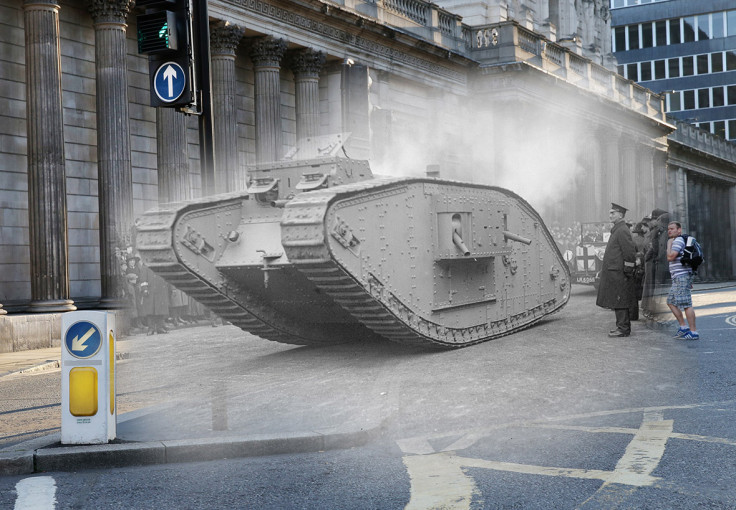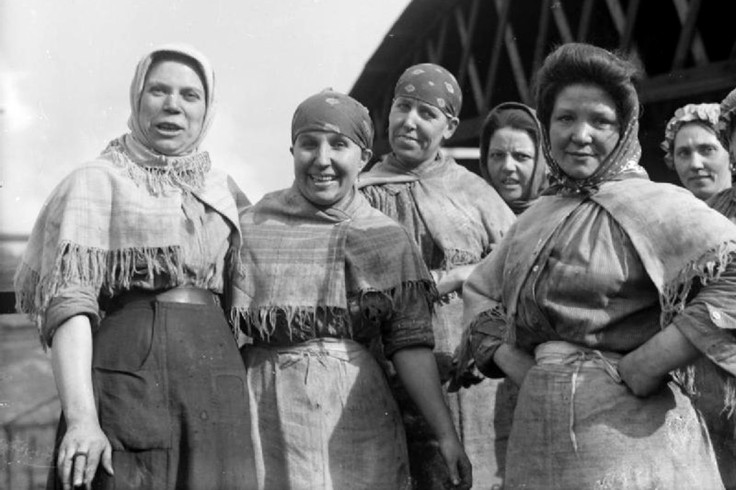WWI 100th Anniversary: After A Hundred Years of Hurt, it's Time to Think Again

In our collective consciousness, the First World War, with its 65 million combatants, 1400 miles of action and 1500 days of conflict, has been distilled down into a handful of grainy, clichéd images. In our mind's eye we see corpses rotting in fetid trenches, skeletal hands poking out from slimy mud. Our internal newsreel catches a group of young moustachioed men beaming with youthful optimism, and then cuts to a mass grave.
Whereas our view of World War Two is generally one of pluck, audacity and derring-do, the popular view of its antecedent is altogether more sombre. We don't think of heroism or glory; all we see are lions, donkeys, and rats as big as cats.
But now, 100 years on from the start of that cataclysmic conflict, perhaps it is time to reassess. Many of the most influential World War One historians, men such as Alan Clark and Basil Liddell Hart, wrote their tomes during the 1960s - a time when the Cold War, and the threat of nuclear Armageddon, made our victory in Great War seem utterly futile. Yet now that the threat of atomic annihilation is itself a chapter of history, we can examine the conflict between 1914 and 1918 in a more charitable light.
Yes the First World War degenerated into a particularly gruelling form of conflict, which reduced men to living in muddy crannies and tormented them with the constant threat of death. And yes some of the tactics were appallingly bone-headed, most infamously the instruction that advancing troops must walk across no-man's land on 1 July 1916.
Yet there were also some remarkable advances, as will be documented elsewhere in IBT's World War One coverage by Lianna Brinded as well as acclaimed historian Andy Robertshaw. The Great War brought us the tank, the fighter plane and the creeping artillery barrage, and gave submarines their first major combat role. It's hard to argue that the Second World War contributed as much to modern weaponry and tactics as its predecessor.
Then there are the advances made away from the battlefield, from the use of modern medical technologies such as X-rays and plastic surgery, to the introduction of women to the world of work. The Great War may have brought revolutionary turmoil to other combatant nations, but in Britain it had a far more beneficial effect, demolishing the old societal boundaries while ushering in equipment which would give ordinary people a better quality of life.
And perhaps most significantly, there are the incredible achievements of the British Army. In 1914 our small expeditionary force amounted to 120,000 men, and had almost lost to a bunch of South African farmers in the Boer War. Arrayed against it was the mighty German military machine, a professional army of 1.9 million men which had crushed everything in its path for the past 40 years. In theory it should have been a walkover; the Germans should have driven the British Expeditionary Force into the English Channel.

Yet the Germans did not do that. Unlike the army of 1940 which crumbled against Hitler's Blitzkrieg, the BEF hung on and, together with the French, pushed the Germans back. Whereas the crushing defeat inflicted on British troops in 1940 is now remembered with fondness thanks to Dunkirk, the heroic resistance put up by our soldiers in 1914 is now almost forgotten, a damning indictment of the way the true World War One story has been mangled like a piece of barbed wire in No Man's Land.
Equally, the events of 1918, when the Allied armies fused infantry, tanks and aircraft to create a brilliant new form of warfare, are largely overlooked today. As Andy Robertshaw says, many people blithely assume the Germans raised the white flag in November 1918 from behind a trench wall; in fact they surrendered after retreating hundreds of miles, forced back by the inexorable power of Allied tactics and technology. It was a blindingly brilliant campaign – and, unlike the Russo-American carve-up of 1945, Britain played a lead role in it.
On the 100<sup>th anniversary of World War One, IBT's coverage will shine a light on these successes, and the human stories which underpinned it – from Lianna's comprehensive overview of First World War machinery, to Shane Croucher's excellent insight into the battalions of tiny men known as 'devil dwarves' who gave the Kaiser hell in northern France.
Yes, we will acknowledge the blunders which have tarnished our view of World War One, but we will put these blunders in context, and show how the much-maligned British generals learned from them, to achieve one of the most remarkable military victories ever seen.
The coverage will be fair, fresh and impartial – the very least the men who fell in World War One deserve.
© Copyright IBTimes 2025. All rights reserved.




















